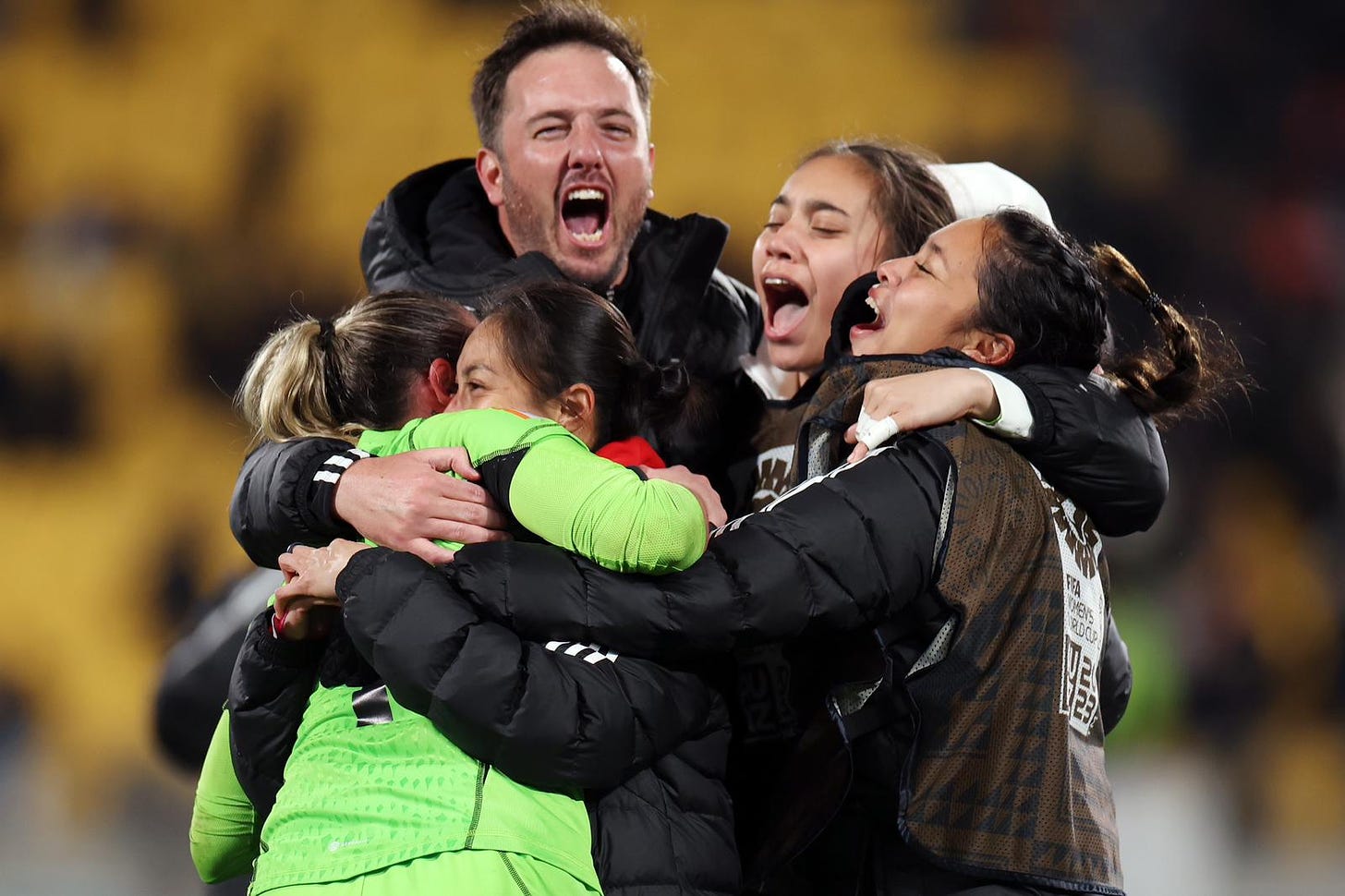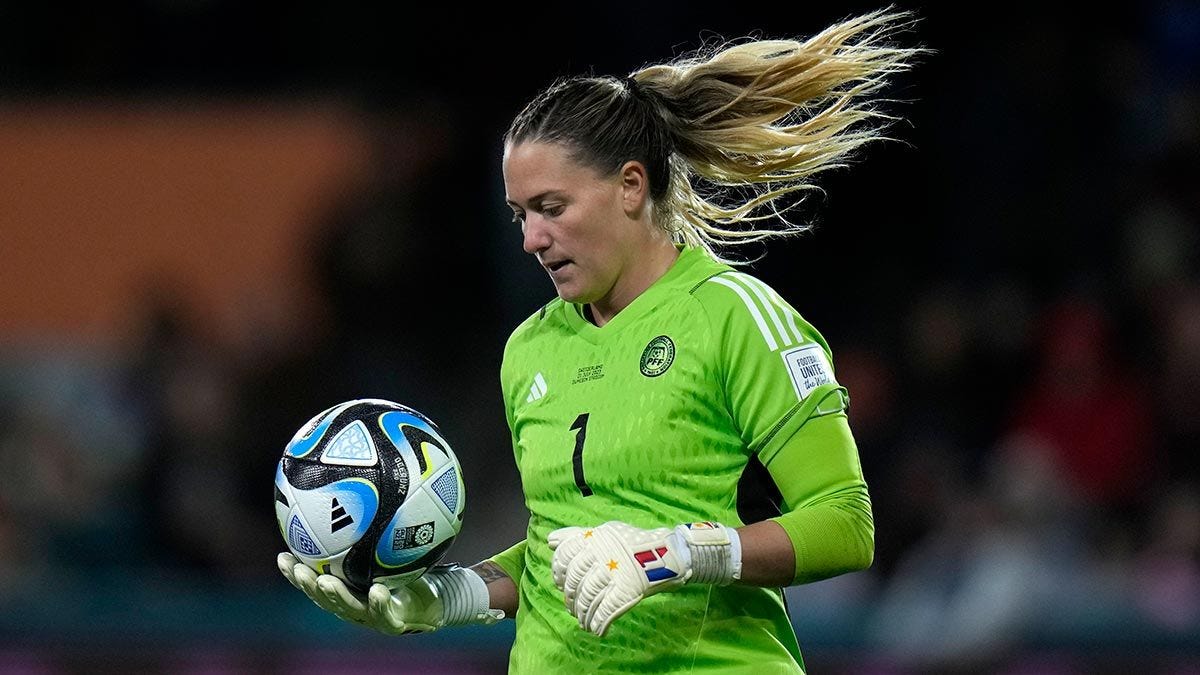The Inside Story behind the rise of some of the World Cup's shining stars between the sticks
So many goalkeepers starred at the 2023 World Cup last summer. Six months, several of the coaches who worked with them talk about the development and progress and offer an insight into their methods..

Some players live for the big stage. Therefore, it was no surprise to see some of the world’s best goalkeepers shine at last summer’s World Cup, such as England’s Mary Earps, who would win the competition’s Golden Glove.
Goalkeeping has been a key area for sceptics of the sport to constantly knock the rapid development of the women’s game, but unsurprisingly like other areas of the sport, those between the posts are improving all the time, batting away calls such as smaller goal frames and the like.
In the Top 100 Female Footballers of the Year project I run for The Guardian, a record nine shot-stoppers made the 2023 list, many of whom thanks to their showings on the world stage down under last summer.
And what stories some of them were. Eventual world champion Cata Coll wasn’t even Spain’s number one at the start of the tournament, while there were virtuoso standout performances among wider solid tournament form, such as the heroics of Mackenzie Arnold and Zećira Mušović in respective dramatic penalty shootout wins for Australia and Sweden.
There was the emergence on the biggest stage of fledgling talents such as Nigeria’s Chiamaka Nnadozie and Netherlands’ Daphne van Domselaar, while Jamaica’s Becky Spencer conceded just one goal across four games.
The expanded tournament format to 32 nations though gave those even less well-known the chance to shine, and many of them took their opportunities, as the likes of Haiti, the Philippines, Morocco and others took their place among the giants of the game.
Their three first choice keepers respectively – Kerly Théus, Olivia McDaniel and Khadija Er-Rmichi – all had impressive tournaments, showing the development is not just at the very top level, but right through the game to some who don’t even have a professional club.
Check out over 100 more unique stories in WFC’s Premium section, available for just £45 for 12 months, paid in one go, or a £6 a month rolling subscription.
All subscriptions come with a 7-day free trial to allow you to explore our full archive.
Plus, guarantee you everything that is to come over the next 12 months…
While Er-Rmichi plays for AS FAR, Morocco’s biggest domestic club, Théus plays for Miami City in the USA, a USL League Two side, while McDaniel didn’t even have a professional club coming into the tournament, before spending the next few months post-World Cup in the Austrian second division.
All three though had goalkeeper coaches pushing them to be the best they can be, and they tell a tale of how to prepare a goalkeeper heading into a World Cup for the first time, and the extensive work done behind the scenes to leave no stone unturned.
McDaniel was one of the most impressive of the newcomers who got the shot at being their nation’s number one, and her superb save to help earn her side a historic first win at the tournament against co-hosts New Zealand lives long in the memory.
“Meeting up with the goalkeepers for the first time, that first camp and contact is about sussing each other out…”
She was fortunate enough though to have an experienced coaching staff to fall back on, led by former Australia head coach Alen Stajcic.
When Stajcic took over the team, he brought in a lot of his trusted staff from back home, which included David Plowright, who had been goalkeeper coach for Australia’s under 23s and Sydney FC’s women’s team.
“It was an opportunity to work at a World Cup, which I don’t think anyone would turn down,” says Plowright.
The New Zealander joined up on a tour to Los Angeles which saw the Philippines go up against his home nation, as he set to work preparing a relatively inexperienced group of goalkeepers for the biggest stage of all.
“Meeting up with the goalkeepers for the first time, that first camp and contact is about sussing each other out, getting to know the personalities and it was clear from the first few sessions it was a top group who were willing and wanting to learn,” he says.
“All three had come from the USA college system. The three senior goalkeepers weren’t involved at a senior club playing every week, a lot were getting private one on one sessions but not in a team, and this was the only time they got to be part of a defensive unit and be in a holistic game-like environment.
“They responded well to it and I like to think they took on board what I could bring from a senior environment having worked in the A-League too. It was probably the first time they’d had video analysis. We’d sit and review everything, video-based analysis on ‘why we do this, why we do that, this happened because that happened’, that kind of thing and it was really evident from that first camp they were thirsty to learn and they appreciated that one on one contact and that it became a bit more analytical.”
Another goalkeeper coach thrown in at the deep end was Frenchman Olivier Pédémas as part of the Morocco coaching staff under compatriot and former Champions League-winning coach, Reynald Pedros.
Unlike Plowright, Pédémas had never worked with a women’s team before, but had plenty of experience, having worked with Ivory Coast at the 2014 World Cup and for a few months with Nottingham Forest when Sabri Lamouchi was the manager.
“It was the first time I worked with women, so I had to quickly analyse their qualities and their shortcomings,” he says.
“I quickly observed the different directions work-wise I was going to implement at the technical, athletic, tactical and psychological level.”
Keep reading with a 7-day free trial
Subscribe to Women's Football Chronicles to keep reading this post and get 7 days of free access to the full post archives.



